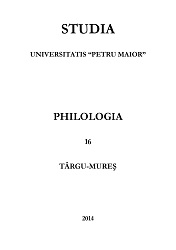Pavel Dan şi Cesare Pavese, două destine literare
Pavel Dan and Cesare Pavese, Two Literary Destinies
Author(s): Gabriela ChiciudeanSubject(s): Comparative Study of Literature, Romanian Literature, Rural and urban sociology, Theory of Literature, Asylum, Refugees, Migration as Policy-fields, Sociology of Literature
Published by: Editura Arhipelag XXI
Keywords: Pavel Dan; Cesare Pavese; realistic writers; Loneliness; autobiography; exile; rural / urban;
Summary/Abstract: Analysing Pavel Dan’s and Cesare Pavese’s work, although there are differences, some similarities regarding the influence of biographies and space is visible. Both writers are born and raised in rural areas, where silent peasants were used with a hard work of the land. Both are considered realistic writers and both were compared with Faulkner. Pavese is also considered a modern writer. Pavel Dan was described both as traditionalist and modernist. The short stories of both writers may be structurally reduced to a unique event. An important symbol for Pavese is the hill, a muted witness of the heroes’ loneliness. The plain is the main symbol in Dan’s work. Loneliness is a major theme met in their short stories and a feeling they experienced for a long time. One of the similarities in the short stories of the two writers is the use of autobiography. Pavese’s literature is a symbiosis with biography, a meditation upon the self-abnormality, a result of an intense experience and of a careful self-analyse. Some literary critiques stated that Pavel Dan has no imagination and uses his reality transformed into text. Exile is another important theme in both creations. Pavese was exiled in the proper meaning of the expression. Pavel Dan was expelled from college and had to finish his studies in another city, Tulcea, with an antagonist landscape compared to the writer’s native land. Another antagonism is met in both creations – rural/urban. Carlo Dionisotti and Sergio Antonelli discuss this antagonism in Pavese’s work. Also Dan uses this opposition. His short stories presenting life in the city present the lost hopes and dreams of the children and young people coming from the rural areas, hoping to help their families remained in the village. This people always end as unhappy, lonely personalities, living fears isolated in the crowd.
Journal: Studia Universitatis Petru Maior. Philologia
- Issue Year: 2014
- Issue No: 16
- Page Range: 60-74
- Page Count: 15
- Language: Romanian

